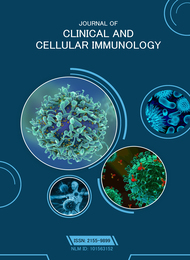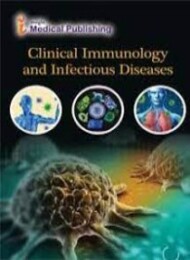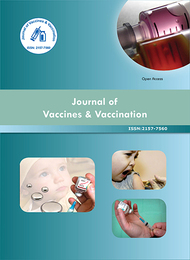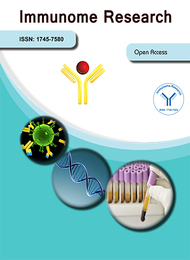Theme: Novel Ideas and Latest advancements in the field of Vaccines and Immunology
World Vaccines 2023
We welcome you all to the 6th International Conference on Vaccines and Immunology which is scheduled during August 21-22, 2023 at Paris, France. The theme of the conference is “Novel Ideas and Latest Advancements in the Field of Vaccines and Immunology”. The conference highlights the evolution of vaccines, recently made advancements in the field of Vaccines, and the scientific research that goes behind vaccines. The gathering incorporates talks from educated researchers, scientists, doctors, students researching vaccines. There will be poster and e-poster competitions, power point presentations, workshops, and exhibitions.
Why to Attend?
The conference is an International platform which gives an opportunity to know different points of view and learn new ideas and trends in the field. They are interactive offerings that offer case-primarily based presentations, on line reviews, and stay conversations with key opinion leaders that consist of beneficial recommendations in our scientific practice. This is the best chance to arrive at the biggest gathering of members where we can present ourselves on the platform and interact with widely acclaimed speakers, the latest methods, improvements, and the most up-to-date advancements in Vaccines, Immunology, and Clinical Trials.
Target Audience
- Directors
- CEOs
- Presidents and Vice Presidents
- Researchers
- Scientists related to R&D
- Deans
- Professors
- Vaccine Developers
- Vaccine Investigators
- Vaccine Manufacturing Companies
- University Faculty
- Medical Schools/Colleges
- Students
Track 1: Vaccines
The type of medicine that trains the immune system of the body to fight against the disease it has not come in contact with before is called a vaccine. A pathogen can be referred to as a germ that can cause disease within the body. An antigen is generally called a subpart of a pathogen that causes the formation of antibodies. So when a new pathogen enters our body, it introduces a new antigen. For every new antigen, our body needs a specific antibody that grabs onto the antigen and defeats the pathogen. Though immunity develops slowly, vaccines are the most effective method for preventing infectious diseases. The performance of any vaccine depends on the disease, the strain of the vaccine, whether the vaccine is scheduled has been properly observed, other factors like genetics, age, and ethnicity.
Related associations and societies: National Institute of Allergy and Infectious Diseases (NIAID), National Institutes of Health (NIH) , Immune Deficiency Foundation (IDF), Federation of Clinical Immunology Societies (FOCIS), Asia Pacific Association of Allergy, Asthma and Clinical Immunology (APAAACI), Clinical Immunology Society, Hepatitis B Foundation (HBF), Pediatric Infectious Diseases Society(PIDS), Canadian Society of Allergy and Clinical Immunology, National Medical Association (NMA)
Track 2: Vaccines and its types
There are three kinds of approaches for making a vaccine in general. They are Whole Microbe approach, Subunit approach, Genetic approach. The difference in the approaches lie in whether they use a whole virus or bacterium; just the parts of the germ that helps to trigger the immune system; or the genetic approach where it provides the instructions for making specific proteins and not the methods where the weakened/dead virus is used for making a vaccine. From late 19th century, vaccines are considered as the matter of National prestige and compulsory vaccination laws were passed. Different types of vaccines are Live, Attenuated vaccines, Inactivated vaccines, Subunit vaccines, Toxoid vaccines, Conjugate vaccines, DNA vaccines and Recombinant vector vaccines.
Related associations and societies: National Institutes of Health (NIH), Federation of Clinical Immunology Societies (FOCIS), Immune Deficiency Foundation (IDF), Asia Pacific Association of Allergy, Asthma and Clinical Immunology (APAAACI), Hepatitis B Foundation (HBF), Pediatric Infectious Diseases Society(PIDS), Clinical Immunology Society,Canadian Society of Allergy and Clinical Immunology National Medical Association (NMA), National Institute of Allergy and Infectious Diseases (NIAID)
Track 3: Viral Mutations and Variants
Mutations are the change of sequence of an organism’s genetic code. Viruses mutate more rapidly than human cells. Mutations vary in severity from having zero consequence to majorly altering a protein and its function. Viruses constantly change from one mutation to another and sometimes these mutations result in a new variant of the virus. Some variants emerge and some disappear while others persist. Scientists and researchers monitor the variants and classify them into variants that need to be monitored, variants that can cause consequences and variants of concern. The monitoring will also be based on how fast the variant spreads, its symptoms, the treatment procedure and how well vaccines protect against the variant. As long as the viruses exist, new variants will continue to emerge.
Related associations and societies: Federation of Clinical Immunology Societies (FOCIS), Asia Pacific Association of Allergy, Asthma and Clinical Immunology (APAAACI), National Institute of Allergy and Infectious Diseases (NIAID), National Institutes of Health (NIH) , Immune Deficiency Foundation (IDF), Clinical Immunology Society, Hepatitis B Foundation (HBF), Pediatric Infectious Diseases Society(PIDS), National Medical Association (NMA), Canadian Society of Allergy and Clinical Immunology
Track 4: Pediatric Vaccines
Pediatric vaccines are the vaccines given to infants, children, and adolescents. Vaccinations are a part of comprehensive child healthcare. The risks of vaccines are small compared to the health risks of the diseases they're intended to prevent which is why every child has to take every vaccine pediatrician recommends. Combination vaccines are generally recommended so that the toddlers/children receive fewer injections. Community vaccination is important as not everyone can get certain vaccines or be able to afford them. Most pediatric vaccines are of no cost or minimal cost to make them more accessible to everyone in society. Some vaccines may cause mild reactions such as fever, soreness near the injected area. But serious reactions are rare. Immunizations give protection against contagious diseases.
Related associations and societies: Pediatric Infectious Diseases Society(PIDS), Canadian Society of Allergy and Clinical Immunology, National Institute of Allergy and Infectious Diseases (NIAID), Asthma and Clinical Immunology (APAAACI), Clinical Immunology Society, Hepatitis B Foundation (HBF), National Medical Association (NMA), National Institutes of Health (NIH) , Immune Deficiency Foundation (IDF), Federation of Clinical Immunology Societies (FOCIS), Asia Pacific Association of Allergy
Track 5: Emerging Infectious Diseases
The outbreaks of previously unknown diseases and infectious diseases that cannot be controlled are called emerging infectious diseases. They are also known diseases that rapidly get increasing in incidence or geographic range in the last 2 decades. There are many reasons why infectious diseases re-emerge. Some of the factors are population growth, migration from one place to another, International travel, poverty, ecological changes due to economic development, and climate change. From the 1970s, nearly 40 infectious diseases have been discovered, including HIV infections, SARS, dengue fever, Zika, MERS, Ebola, chikungunya, avian flu, and most recently Coronavirus. Research and developments of vaccines however give hope that infectious diseases can be controlled or even eliminated.
Related associations and societies: National Institute of Allergy and Infectious Diseases (NIAID), Asia Pacific Association of Allergy, National Institutes of Health (NIH) , Immune Deficiency Foundation (IDF), Federation of Clinical Immunology Societies (FOCIS), Asthma and Clinical Immunology (APAAACI), Clinical Immunology Society, Hepatitis B Foundation (HBF), Canadian Society of Allergy and Clinical Immunology, Pediatric Infectious Diseases Society(PIDS), Indian Vaccine Manufacturers Association (IVMA), National Medical Association (NMA)
Track 6: Vaccine research and Development
Vaccines are the greatest public health advancements resulting in the control, elimination, or near-elimination of infectious diseases that were once pervasive. Today, more people are getting benefited as vaccines are safe and efficacious to prevent infectious diseases and provide essential health benefits at all ages, from infants to senior populations. Vaccines are developed, tested, and regulated just like any other drugs but vaccines are more thoroughly tested. Vaccine research and development departments require strong project management systems that require skill sets among scientists and engineers. Any vaccine after getting approved by the Centers for Disease Control (CDC) and Food and Drug Administration (FDA) should continue to monitor and examine vaccine safety. Concerns that are discovered later could lead the licensed vaccine to be withdrawn from use, although which is very rare. We are in the new era of vaccine innovation, where we thrive to prevent and treat disease with a special focus on both to prevent and treat disease.
Related associations and societies: Clinical Immunology Society, Hepatitis B Foundation (HBF), Pediatric Infectious Diseases Society(PIDS), Indian Vaccine Manufacturers Association (IVMA), National Institute of Allergy and Infectious Diseases (NIAID), National Institutes of Health (NIH), Immune Deficiency Foundation (IDF), Federation of Clinical Immunology Societies (FOCIS), Asia Pacific Association of Allergy, Asthma and Clinical Immunology (APAAACI), National Medical Association (NMA)
Track 7: Corona Virus
Coronavirus (COVID-19) is an infectious disease which is caused by the SARS-CoV-2 virus. It spreads from an infected person’s mouth or nose in small liquid particles when they cough, sneeze, speak, sing or breathe. The disease is caused by the SARS-CoV-2 virus. These particles range from smaller aerosols to larger respiratory droplets. We can be infected by breathing in the virus if we are near someone who has COVID-19, or by touching the contaminated surfaces and then our eyes, nose, or mouth. Most of the infected people experience mild to moderate illness and recover without any special treatment. However, some get seriously ill and need medical assistance. Older people and people who have been suffering from chronic diseases develop serious illnesses that can even lead to death. Variants of Coronavirus are also observed in recent times like Alpha and Omricon variants. Vaccination is highly recommended for people as anyone can catch the virus.
Related associations and societies: Canadian Society of Allergy and Clinical Immunology, Clinical Immunology Society, Hepatitis B Foundation (HBF), Indian Vaccine Manufacturers Association (IVMA),National Institute of Allergy and Infectious Diseases (NIAID), National Institutes of Health (NIH) , Immune Deficiency Foundation (IDF), Pediatric Infectious Diseases Society(PIDS), Federation of Clinical Immunology Societies (FOCIS), Asia Pacific Association of Allergy, Asthma and Clinical Immunology (APAAACI), National Medical Association (NMA)
Track 8: Virology & Microbiology
The study of the scientific discipline concerned with the study of the biology of viruses and viral diseases including biochemistry, physiology, clinical aspects of viruses is called Virology. Virology deals with the following aspects of viruses: their structure, evolution, classification, ways of infecting and exploiting the host cells for reproduction, their interaction with host organism physiology and immunity, the diseases they cause, the techniques to isolate and culture them, and their use in research and therapy. The scientific study of microorganisms, those being unicellular, multicellular, or acellular is called microbiology. Microbiology provides information that is needed to create vaccines and suitable treatments for various infectious diseases. Microbiologists develop new products that kill viruses and bacteria. Biologists use microbiology for developing new ways of combating illness.
Related associations and societies: Federation of Clinical Immunology Societies (FOCIS), National Institutes of Health (NIH) , Immune Deficiency Foundation (IDF), Asia Pacific Association of Allergy, Asthma and Clinical Immunology (APAAACI), Clinical Immunology Society,National Institute of Allergy and Infectious Diseases (NIAID), Hepatitis B Foundation (HBF), Pediatric Infectious Diseases Society(PIDS), Indian Vaccine Manufacturers Association (IVMA), National Medical Association (NMA)
Track 9: Clinical Trials
Clinical trials are research studies performed by people who are evaluating a medical, surgical, or behavioral intervention. This is a primary way that researchers find out if a new treatment, like a new drug or diet, or medical device (for example, a pacemaker) is safe and effective in people. Clinical development is a three-phase process, in Phase 1, a small group of people receives the vaccine. In phase 2, the clinical study of the vaccine is expanded. In phase-3, thousands of people are given the vaccine. The last phase is where ongoing studies are done on the vaccine after the vaccine is approved and licensed. Often a clinical trial is a trial and error process focused on a new treatment whether it’s more effective and/or has less harmful side effects than the standard treatment.
Related associations and societies: National Medical Association (NMA), National Institute of Allergy and Infectious Diseases (NIAID), Immune Deficiency Foundation (IDF), Federation of Clinical Immunology Societies (FOCIS), Asia Pacific Association of Allergy, National Institutes of Health (NIH), Asthma and Clinical Immunology (APAAACI), Clinical Immunology Society, Hepatitis B Foundation (HBF), Pediatric Infectious Diseases Society(PIDS), Indian Vaccine Manufacturers Association (IVMA)
Track 10: Immunology
The branch of biology and medicine that covers the study of immune systems in all organisms is called immunology. The immune responses contribute to the development of many common disorders such as metabolic, cardiovascular, and neurodegenerative conditions such as Alzheimer’s. Immunology has numerous applications in the field of medicine, particularly in organ transplantation, oncology, rheumatology, virology, bacteriology, parasitology, psychiatry, and dermatology. Immune responses contribute to the development of many common disorders not generally viewed as immunologic and they include metabolic, cardiovascular, cancer, and neurodegenerative conditions like Alzheimer’s disease. Besides, there are direct implications of the immune system in infectious diseases (tuberculosis, malaria, hepatitis, pneumonia, dysentery) as well. Immunology is given the top most important as it helps in the advancements of biochemistry, biomedicine, and modern medicine.
Related associations and societies: Immune Deficiency Foundation (IDF), Federation of Clinical Immunology Societies (FOCIS), Asia Pacific Association of Allergy, Asthma and Clinical Immunology (APAAACI), Clinical Immunology Society, National Institute of Allergy and Infectious Diseases (NIAID), National Institutes of Health (NIH) , Hepatitis B Foundation (HBF), Pediatric Infectious Diseases Society(PIDS), Indian Vaccine Manufacturers Association (IVMA), National Medical Association (NMA)
Track 11: Travel Immunization
Immunizations for travel are most important to prevent travel-related infections. Generally, immunization needs are based on the tourist’s medical history, likely exposures while traveling, countries, and regions to be visited. Tourists are at risk of catching infectious diseases such as cholera, European tick-borne encephalitis, Hepatitis A and B, influenza, yellow fever which are preventable by vaccine. Proper research has to be done before the travel about the country's healthcare as well. The travelers’ medical record must contain the vaccine type, dose, date of administration. Though the chances of being exposed to infections depend on our lifestyle, duration, and mode of travel, locations we stay, it is highly recommended to get vaccinated. It is also advisable to consult a doctor before two months of travel to get all the vaccination shots.
Related associations and societies: Hepatitis B Foundation (HBF), Indian Vaccine Manufacturers Association (IVMA), National Institutes of Health (NIH) , Immune Deficiency Foundation (IDF), Federation of Clinical Immunology Societies (FOCIS), Asia Pacific Association of Allergy, Asthma and Clinical Immunology (APAAACI), Clinical Immunology Society, National Institute of Allergy and Infectious Diseases (NIAID), Pediatric Infectious Diseases Society(PIDS), National Medical Association (NMA)
Track 12: Plant-Based Vaccines
The plant-based vaccine method works by isolating a specific antigen protein that can trigger the human immune response from the targeted vaccine. A gene from the protein is transferred to bacteria which are used to infect plant cells. Scientists and researchers are driven more towards the production of safer, easier, and more effective vaccines such as plant-based vaccines for treating severe diseases. The plant-based human vaccines are not commercialized as of now but many viral and bacterial subunit vaccines are in the production stages which are attempted in transgenic plants. Compared to conventional vaccine methods, plant-based vaccines are cost-effective to produce large quantities; they are easy to store, handling is easy, easy to expand the production scale, can be taken orally or through the mucosal route.
Related associations and societies: National Institutes of Health (NIH) , Federation of Clinical Immunology Societies (FOCIS), Asia Pacific Association of Allergy, Asthma and Clinical Immunology (APAAACI), Clinical Immunology Society, Hepatitis B Foundation (HBF), Pediatric Infectious Diseases Society(PIDS), National Institute of Allergy and Infectious Diseases (NIAID), Indian Vaccine Manufacturers Association (IVMA), National Medical Association (NMA), Immune Deficiency Foundation (IDF)
Track 13: Vaccines Associated with Cancer
The vaccines that can treat existing cancers are called treatment vaccines. Some vaccines prevent healthy people from getting cancers caused by viruses as well. The U.S Food and Drug Administration (FDA) approved two types of vaccines that can prevent cancer and they are the Human papillomavirus (HPV) vaccine that helps to prevent cervical, vaginal, vulvar, anal cancer, and genital warts and the Hepatitis B vaccine that protects against the hepatitis B virus. HPV can cause oral cancer and the Hepatitis B virus can cause liver cancer. Cancer vaccines are sometimes personalized as every human has a different immune response and a person’s tumor can be quite different from others. Anorexia, back pain, fever, joint ache, nausea, and headache are some of the common side effects of approved cancer vaccines but they are not limited to these.
Related associations and societies: National Medical Association (NMA), National Institute of Allergy and Infectious Diseases (NIAID),Immune Deficiency Foundation (IDF),Federation of Clinical Immunology Societies (FOCIS), National Institutes of Health (NIH), Asia Pacific Association of Allergy, Asthma and Clinical Immunology (APAAACI), Clinical Immunology Society, Hepatitis B Foundation (HBF), Pediatric Infectious Diseases Society(PIDS), Indian Vaccine Manufacturers Association (IVMA)
Track 14: HIV vaccines
The Human immunodeficiency virus (HIV) vaccine can either protect individuals from being infected with HIV or treat HIV-infected individuals. The virus can be transmitted through infected blood, sexual intercourse (semen or vaginal fluids). AIDS also called Acquired Immunodeficiency Syndrome is caused by HIV where it interferes with the body’s ability to fight infections. Common symptoms of AIDS include weight loss, fever, fatigue, and recurrent infections. An HIV vaccine can either induce an immune response against HIV or consist of preformed antibodies against HIV. Two active HIV vaccine regimens are studied in the RV 144 and Imbokodo trials, which showed the results that it helped to prevent HIV in some individuals. However, the protection was observed in only a few individuals and was not long-lasting results. For these reasons, no HIV vaccines have been licensed in the market yet but research is still going on.
Related associations and societies: National Institutes of Health (NIH) , Immune Deficiency Foundation (IDF),National Institute of Allergy and Infectious Diseases (NIAID), National Medical Association (NMA), Federation of Clinical Immunology Societies (FOCIS), Asia Pacific Association of Allergy, Asthma and Clinical Immunology (APAAACI), Clinical Immunology Society, Hepatitis B Foundation (HBF), Pediatric Infectious Diseases Society(PIDS), Indian Vaccine Manufacturers Association (IVMA)
Track 15: Anti-bodies and Viral Diseases
Anti-body also called immunoglobulin is a protective protein produced by the immune system in response to the presence of a foreign substance, called an antigen. A healthy immune system produces antibodies when they react with foreign protein antigens, such as infectious organisms. A viral disease is any illness or health condition which is caused by a virus. Viral diseases are contagious and spread from one person to another. Antibiotics cannot treat viral diseases, which can only cure bacterial diseases and infections. Viruses invade human body cells and use the components of those cells to help them multiply. General treatments for viral infections are Acetaminophen or ibuprofen for fever and body aches, maintaining a healthy lifestyle, drinking extra fluids, getting extra rest and sleep.
Related associations and societies: Federation of Clinical Immunology Societies (FOCIS), National Institute of Allergy and Infectious Diseases (NIAID), Pediatric Infectious Diseases Society(PIDS), Asia Pacific Association of Allergy, Asthma and Clinical Immunology (APAAACI), National Institutes of Health (NIH) , Immune Deficiency Foundation (IDF), Clinical Immunology Society, Hepatitis B Foundation (HBF), Indian Vaccine Manufacturers Association (IVMA), National Medical Association (NMA)
Track 16: Vaccine safety and Efficacy
The vaccines are always recommended for use after it gets licensed by the Food and Drug Administration (FDA) and Centers for Disease Control and Prevention (CDC). Every authorized and approved vaccine goes through safety testing, effectiveness, and clinical trials. Vaccine safety is monitored after it is recommended for infants, children, and adults. Efficacy in a vaccine is measured by how it performs in ideal conditions and controlled clinical trials. Effectiveness can differ from efficacy as we can’t predict exactly how effective the vaccine is in the real world when compared to clinical trials results. For complete protection, it takes time but all the doses of the vaccine should be taken.
Related associations and societies: Clinical Immunology Society, Hepatitis B Foundation (HBF), Pediatric Infectious Diseases Society(PIDS), Indian Vaccine Manufacturers Association (IVMA),Asia Pacific Association of Allergy, Asthma and Clinical Immunology (APAAACI), National Medical Association (NMA), National Institute of Allergy and Infectious Diseases (NIAID), National Institutes of Health (NIH), Immune Deficiency Foundation (IDF), Federation of Clinical Immunology Societies (FOCIS)
Track 17: Immunization for pregnant& Lactating women
Vaccines that are recommended by the Centers for Disease Control and Prevention (CDC) are given for women before, during, and after pregnancy to keep them and their babies healthy. The antibodies developed by the mother not only protect them but also cross the placenta and protect their babies from diseases. Vaccines like flu (influenza), tetanus toxoids are recommended during pregnancy by CDC. Vaccines to avoid when pregnant are the chickenpox (varicella) vaccine, MMR vaccine, and shingles vaccines which are been developed with the highest safety concerns for both mothers and babies. COVID- 19 vaccines are now recommended to pregnant, breastfeeding, and pregnancy planning women as well. The live vaccines are not to be given to pregnant women as they can be harmful to the baby.
Related associations and societies: Pediatric Infectious Diseases Society(PIDS), Immune Deficiency Foundation (IDF), National Institute of Allergy and Infectious Diseases (NIAID), National Institutes of Health (NIH) , , Federation of Clinical Immunology Societies (FOCIS), Asia Pacific Association of Allergy, Asthma and Clinical Immunology (APAAACI), Clinical Immunology Society, Hepatitis B Foundation (HBF), Indian Vaccine Manufacturers Association (IVMA), National Medical Association (NMA)
Track 18: Advancements of Vaccines
Vaccinations have the power to improve people’s chances of survival, protect communities from new and reemerging infectious diseases, and enhance societal productivity. With every new technological advancement and more clinical trials, we can extend the benefits of vaccines to more people and provide more protection. Five recent developments contributing to the advancement in vaccines are faster sequencing, synthetic generation, use of artificial intelligence (AI), researching more on mRNA and DNA vaccines. Using recombinant technology, single-use technology, continuous manufacturing, use of animal-free components are the latest trends in the manufacturing of vaccines.
Related associations and societies: National Institutes of Health (NIH), Federation of Clinical Immunology Societies (FOCIS), Immune Deficiency Foundation (IDF), Asia Pacific Association of Allergy, Asthma and Clinical Immunology (APAAACI), Clinical Immunology Society, Hepatitis B Foundation (HBF), National Institute of Allergy and Infectious Diseases (NIAID), Pediatric Infectious Diseases Society(PIDS), Indian Vaccine Manufacturers Association (IVMA), National Medical Association (NMA)
Track 19: Adverse effects of Vaccination
Vaccines, though they are designed to protect from disease, can cause side effects, just as any other medication. Most side effects caused by vaccinations are mild, such as soreness, swelling, fever, achiness. The side effects usually last for a couple of days and the pain near the injected area will last for 3-4 days. Common and moderate side effects are a sign that vaccines are working and not experiencing any side effects does not mean that the vaccine is ineffective. Everyone has a different immune response and it means everybody responds differently. Adverse effects are rare but may include seizure or life-threatening allergic reaction, severe infection beginning at the vaccination site, encephalitis (severe brain reaction), and death (1-2 per million, mostly in people with weakened immune systems).
Related associations and societies: National Institute of Allergy and Infectious Diseases (NIAID), Hepatitis B Foundation (HBF), National Institutes of Health (NIH), Federation of Clinical Immunology Societies (FOCIS), Immune Deficiency Foundation (IDF), Asia Pacific Association of Allergy, Asthma and Clinical Immunology (APAAACI), Clinical Immunology Society,Pediatric Infectious Diseases Society(PIDS), Indian Vaccine Manufacturers Association (IVMA), National Medical Association (NMA)
Track 20: Geriatric immunization
Vaccines for the elderly are important as they have low immune power and have an increased risk of viruses. Immune responses vary in older adults as age-related changes such as obesity, frailty influence the immune system. Getting vaccinated is important if one has ongoing health conditions like diabetes or heart disease. Vaccines appear to be safe and effective as well for older people. Senior citizens should discuss with the physicians and take vaccines like the flu vaccine, the pneumococcal vaccine to prevent pneumonia, the zoster vaccine (for shingles), and Tdap (tetanus-diphtheria-pertussis) vaccines that are recommended to them.
Related associations and societies: National Institute of Allergy and Infectious Diseases (NIAID), Indian Vaccine Manufacturers Association (IVMA), National Medical Association (NMA), Federation of Clinical Immunology Societies (FOCIS), National Institutes of Health (NIH) , Immune Deficiency Foundation (IDF),Asia Pacific Association of Allergy, Asthma and Clinical Immunology (APAAACI), Clinical Immunology Society, Hepatitis B Foundation (HBF), Pediatric Infectious Diseases Society(PIDS)
Track 21: Insulin and Insulin Therapy
Insulin is a peptide hormone produced by beta cells of the pancreatic islets determined in humans by the INS gene. It is considered to be the main anabolic hormone of the body. It regulates the metabolism of carbohydrates, fats and protein by promoting the absorption of glucose from the blood into liver, fat and skeletal muscle cells. In these tissues the absorbed glucose is converted into either glycogen via glycogenesis or fats (triglycerides) via lipogenesis, or in the case of the liver, into both. Glucose production and secretion by the liver is strongly inhibited by high concentrations of insulin in the blood. Circulating insulin also affects the synthesis of proteins in a wide variety of tissues. It is therefore an anabolic hormone, promoting the conversion of small molecules in the blood into large molecules inside the cells. When there is insulin resistance, the cells do not respond and do not expand, which causes the blood sugar to be too high.
The insulin that the body would typically produce is replaced by insulin therapy. Diabetes type 1 patients are required to consume insulin daily. When other medications and treatments for type 2 diabetes are unable to regulate blood sugar levels, insulin must be taken.
Related associations and societies: National Institutes of Health (NIH) , Federation of Clinical Immunology Societies (FOCIS), Asia Pacific Association of Allergy, Asthma and Clinical Immunology (APAAACI), Clinical Immunology Society, Hepatitis B Foundation (HBF), Pediatric Infectious Diseases Society(PIDS), National Institute of Allergy and Infectious Diseases (NIAID), Indian Vaccine Manufacturers Association (IVMA), National Medical Association (NMA), Immune Deficiency Foundation (IDF)
Track 22: Bio Markers and Case Reports
A biomarker is an indicator that is used to know the severity or presence of a disease. The indicator can be chemical, physical, or biological in nature and the measurement may be biochemical, functional, physiological, cellular, or molecular. In vaccines, biomarkers are needed to predict the reactogenicity of a vaccine, ideally before vaccination or when clinical signs occur, or before any irreversible damage. Biomarkers help in early diagnosis, drug response, disease identification, and prevention. A case report is a detailed report of an individual patient where his/her medical history, diagnosis, and treatment are followed up. Case reports are often viewed as case-based learning where unique or rare features of a disease, therapeutic approaches play an important role in medical education.
Related associations and societies: Immune Deficiency Foundation (IDF), National Institute of Allergy and Infectious Diseases (NIAID), National Institutes of Health (NIH), Asia Pacific Association of Allergy, Asthma and Clinical Immunology (APAAACI), National Medical Association (NMA), Federation of Clinical Immunology Societies (FOCIS),Clinical Immunology Society, Hepatitis B Foundation (HBF), Pediatric Infectious Diseases Society(PIDS), Indian Vaccine Manufacturers Association (IVMA)
Track 23: Antibiotics
Medicine (like penicillin or its derivatives) prescribed by the doctor that treats diseases caused by bacteria is often as an antibiotic. A bactericidal antibiotic kills the bacteria whereas a bacteriostatic antibiotic stops the bacteria from multiplying. Antibiotics do not treat viral infections like flu and cough. Overuse of antibiotics is not recommended as antibiotics can lead some bacteria to change their form or structure and if the antibiotic course is stopped mid-way, the bacteria may be partially treated and not completely killed. Side effects that are commonly caused after the use of antibiotics are diarrhea, nausea, vomiting, and rashes. Less common side effects observed would be the formation of kidney stones, abnormal blood clotting, and sensitivity to sunlight, deafness, and blood disorders.
Related associations and societies: National Institute of Allergy and Infectious Diseases (NIAID), National Institutes of Health (NIH) , Immune Deficiency Foundation (IDF), Federation of Clinical Immunology Societies (FOCIS), Asia Pacific Association of Allergy, Asthma and Clinical Immunology (APAAACI), Clinical Immunology Society, Hepatitis B Foundation (HBF), Pediatric Infectious Diseases Society(PIDS), Indian Vaccine Manufacturers Association (IVMA), National Medical Association (NMA)
Track 24: Vaccine Guidelines
While vaccines are shown to be highly effective at protecting people against diseases, certain guidelines are to be followed before and after taking a vaccine.
•Avoid alcohol and tobacco.
•Avoid strenuous physical activity for a couple of days.
•Maintain a healthy lifestyle.
•8 hours of sleep before the vaccination day.
•Do not delay consulting a doctor if you are experiencing symptoms like fever, chills before the vaccination. Side effects after the vaccination are normal for a couple of days.
•Consult a physician if you have any acute illness before vaccination as can help to reduce adverse reactions in the future.
Related associations and societies: National Institute of Allergy and Infectious Diseases (NIAID), National Institutes of Health (NIH), Federation of Clinical Immunology Societies (FOCIS), Asia Pacific Association of Allergy, Asthma and Clinical Immunology (APAAACI), Clinical Immunology Society, Hepatitis B Foundation (HBF), Pediatric Infectious Diseases Society(PIDS), Indian Vaccine Manufacturers Association (IVMA), National Medical Association (NMA), Immune Deficiency Foundation (IDF)
Track 25: Vaccine Manufacturing Technologies
The recent vaccine shortages have provided a timely reminder that the world’s vaccine supply has to be increased and the manufacturing issues need to be resolved much faster. The applications of newer technologies in the discovery, development, and production of vaccines have the potential to prevent repeated occurrences of viruses and infectious diseases. Vaccines like Gene-based vaccines, virus-like particles, plant-derived vaccines, and novel adjuvants and delivery systems are very promising and safer for use. More people will have faster access to effective vaccines against a broader spectrum of diseases. However, the increased cost of producing new vaccines and regulatory uncertainty still remains a challenge to vaccine manufacturers.
Related associations and societies: National Institutes of Health (NIH) , Federation of Clinical Immunology Societies (FOCIS), Asia Pacific Association of Allergy, Asthma and Clinical Immunology (APAAACI), Clinical Immunology Society, Hepatitis B Foundation (HBF), Pediatric Infectious Diseases Society(PIDS), National Institute of Allergy and Infectious Diseases (NIAID), Indian Vaccine Manufacturers Association (IVMA), National Medical Association (NMA), Immune Deficiency Foundation (IDF)
The global vaccines market size was USD 41.7 billion in the year 2019 and is expected to reach USD 58.4 billion by the year 2024, exhibiting a CAGR of 7.0% during the forecast period.
Graph: Vaccines market, by region (USD Billion)
From the graph, we can say that North America has the largest share in vaccines in 2017 and is gradually expected to increase in the next coming years. The increase in investments by both government and non-government organizations is one of the biggest factors that made North America have the highest share in the global vaccines market. The market in Asia, on the other hand, is expected to register the highest growth in the forecast period. Factors such as an increase in healthcare expenditure, government initiatives, and the presence of a large patient population are driving the growth of the vaccines market in Asia.
The global market is dominated by large suppliers all over the globe. The top market players, such as GlaxoSmithKline (GSK) plc., Sanofi, Merck & Co., Pfizer Inc., account majority of the market. These companies have the capability of making strategic decisions, a strong portfolio, and focus on eradicating complex diseases through vaccination.
Based on patient type, the vaccines market is divided into pediatric and adult patients. Compared to adult patients, the pediatric patient's segment accounted for the largest share in the global vaccines in the year 2018. Based on technology, the vaccines market is segmented into live attenuated vaccines, inactivated and subunit vaccines, conjugate vaccines, recombinant vaccines, and toxoid vaccines. Among all, the conjugate vaccines segment accounted for the largest share of the vaccines market in 2018.
Intramuscular & subcutaneous administration witnessed the highest growth during the forecast period in 2018 and registered as the highest CAGR during the forecast period. This mode of administration is associated with a low rate of injection site reactions and better immune response.
The coronavirus outbreak has exerted pressure on the research and development fields. Manufacturers had to increase production capabilities and escalate the supply of products and other commodities. The market is now witnessing positive growth as the rise in investments for R&D and the launch of potential products have also anticipated contributing to the market during the forecast period. Furthermore, the market growth has been greatly increased as vaccines have the potential to transform health by eliminating the burden of life-threatening infectious diseases among the population. The government and health care organizations are focusing on developing advanced infrastructure for vaccine production. The demand for vaccines is growing globally to fulfill the immunization drive launched by different governments to eradicate certain endemic diseases.
In March 2020 Pfizer had collaborated with BioNTech in order to advance the development of mRNA vaccines for coronavirus infection.
In March 2019 Merck & Company Inc. is working on new TB drugs for people suffering from tuberculosis that increases the development in vaccine research.
Vaccines associations and societies:
- National Institute of Allergy and Infectious Diseases (NIAID) (USA)
- National Institutes of Health (NIH) (USA)
- Immune Deficiency Foundation (IDF) (USA)
- Federation of Clinical Immunology Societies (FOCiS)
- Asia Pacific Association of Allergy, Asthma and Clinical Immunology (APAAACI)
- Clinical Immunology Society
- Hepatitis B Foundation (HBF)
- Pediatric Infectious Diseases Society(PIDS)
- Indian Vaccine Manufacturers Association (IVMA)
- National Medical Association (NMA)
Top 10 global universities for infectious diseases
- Harvard University
- Johns Hopkins University
- University of Oxford
- London School of Hygiene and Tropical Medicine
- University of Washington
- Imperial College London
- University of California--San Francisco
- University College London
- University of Melbourne
- Emory University
Top 10 Vaccine manufacturers in the world
- GlaxoSmithKline
- Merck & Co
- Sanofi
- Pfizer
- Novavax
- Emergent BioSolutions
- CSL
- Inovio Pharmaceuticals
- Bavarian Nordic
- Mitsubishi Tanabe
Conference Highlights
- Vaccines
- Vaccines and its types
- Viral Mutations and Variants
- Pediatric Vaccines
- Emerging Infectious Diseases
- Vaccine research and Development
- Corona Virus
- Virology & Microbiology
- Clinical Trials
- Immunology
- Travel Immunization
- Plant-Based Vaccines
- Vaccines Associated with Cancer
- HIV vaccines
- Anti-bodies and Viral Diseases
- Vaccine safety and Efficacy
- Immunization for pregnant & Lactating women
- Advancements of Vaccines
- Adverse effects of Vaccination
- Geriatric immunization
- Bio Markers and Case Reports
- Antibiotics
- Vaccine Guidelines
- Vaccine Manufacturing Technologies
- Insulin and Insulin Therapy
To share your views and research, please click here to register for the Conference.
To Collaborate Scientific Professionals around the World
| Conference Date | August 21-22, 2023 | ||
| Sponsors & Exhibitors |
|
||
| Speaker Opportunity Closed | |||
| Poster Opportunity Closed | Click Here to View | ||
Useful Links
Special Issues
All accepted abstracts will be published in respective Our International Journals.
- Journal of Clinical and Cellular Immunology
- Journal of Vaccines & Vaccination
- Clinical Immunology and Infectious Diseases
Abstracts will be provided with Digital Object Identifier by




















